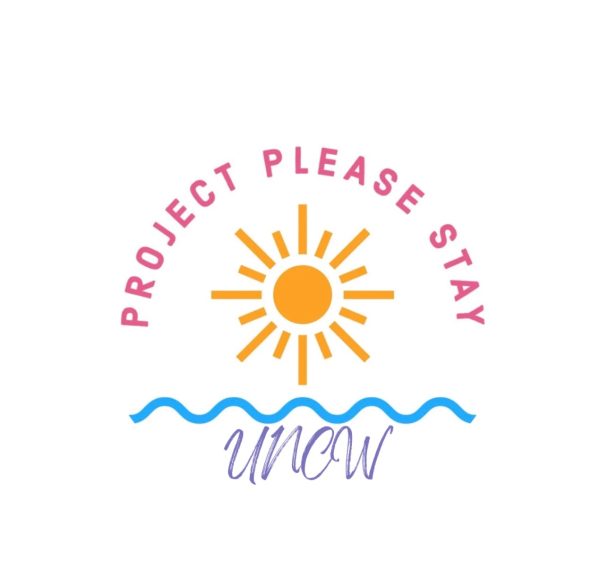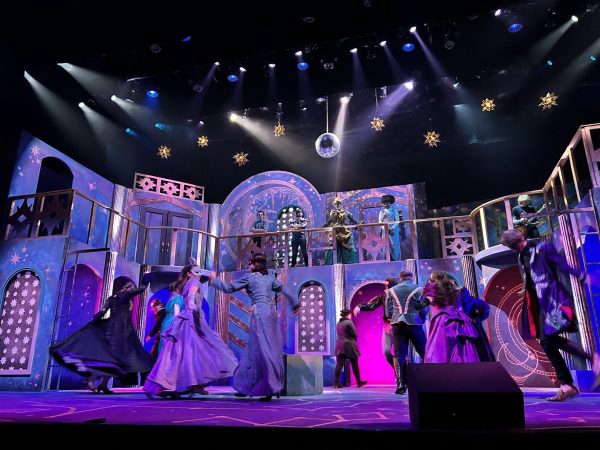News flash: annual flash fiction ceremony celebrates success
A laboratory is a place equipped to conduct scientific experiments, tests and investigations. It was also the theme of Randall Library’s annual Flash Fiction contest and award ceremony held Tuesday, April 16.
The laboratory theme was meant to connect a component of the library with a theme students can manipulate with their creative flash fiction stories.
“Randall Library is a laboratory where you can connect, collaborate, iterate, discuss, discover, and take your studies and work to the next level,” said university librarian Sarah Watstein.
The theme was chosen by Randall Library’s Programming and Exhibit Team, which consists of Watstein, digital and visual media coordinator John Crawford, first year engagement librarian Lisa Coats, and faculty and events coordinator for Randall Library Christopher Rhodes.
“This year’s theme reflects trending in academic libraries,” Rhodes said. “Today, transformations in technology, media and culture are driving fundamental changes in the production and consumption of information and the practice of scholarship. Nowhere is this more evident than on college and university campuses.”
Rhodes planned much of the event.
“I have helped coordinate the last three Flash Fiction contests by weighing in on the contest theme, promoting the contest launch, coordinating the submissions process, serving as a liaison between UNCW’s publishing laboratory and Randall Library, and pitching the contest to the ART 260 students who provide the illustrations,” Rhodes said. “I also plan the Flash Fiction reading/reception/book party.”
The event took place in front of the library’s new exhibit, Inspirational Spaces: 21st Century Academic Libraries.
Two creative writing MFA candidates, Nicola DeRobertis-Theye and Rachel Richardson, tied for first place this year. The two first place winners and the second place winner, Anastasia Hilton, read their stories at the event.
“Every year I look forward to this,” Richardson said. “I’m especially fond of the illustration on the cover.”
Students were asked to mention a laboratory and the William Randall Library in their pieces. The rest was up to their creative devices.
Nicola DeRobertis-Theye read her story, “Alphabets,” first.
“This was the second Flash Fiction piece I (have) ever written. I had a previous Flash Fiction piece published in Treehouse, an undergraduate online literature journal,” DeRobertis-Theye said.
DeRobertis-Theye did not find much trouble incorporating the laboratory theme into her story.
“I started the piece with the first sentence,” DeRobertis-Theye said. “I knew the story had to have the word laboratory and Randall Library mentioned. I used my experience working in a bookstore. I found the deadline useful as it put pressure on me to get the piece out in time.”
Another winner chose to include the theme of William Randall based on Randall’s personal history.
“I remembered that we had to use the library in our story. I researched William Randall and learned he was a spy in North Africa,” Hilton, a creative writing and communications major, said. “I took the wrong moral from the story, though. I chose to base my story in North Africa, instead of portraying Randall as a superhero. Maybe I’ll do that next year.”
“This was my second year entering the contest. Last year I won an honorable mention,” Hilton said.
Creative writing faculty member Tim Bass spoke on flash fiction after the readings.
“Students naturally think longer is better. Flash fiction takes form and compresses it into something better. It therefore becomes something denser, and more powerful,” Bass said.
The three flash fiction classes offered at UNCW filled up quickly, according to Bass.
“The aim of flash fiction is to be a whisper,” Bass said. “A whisper can be more effective than a touch. It can stay with you long after you’ve heard it. It is there for the briefest physical time, yet its echo resides with you for a long time.”
The Flash Fiction submissions were judged by Watstein, associate English professor Mark Boren and creative writing MFA coordinator Lavonne Adams. The judges read each story on their own, then gathered for an hour to discuss and choose the winners.
The illustration coordinator, Ned Irvine, associate professor of studio art, art and art history, chose the illustrations that appear next to the stories in the published book, “Laboratory.” The book contains works from the top four winners and 11 honorable mentions. They were given out for free at the event.
The event ended on an inspirational note for next year’s contest.
“If you don’t write flash fiction, you can,” Bass said. “You start where you aren’t supposed to, in the middle of the story, never at the beginning. In a jiff, you got yourself some flash fiction.”












